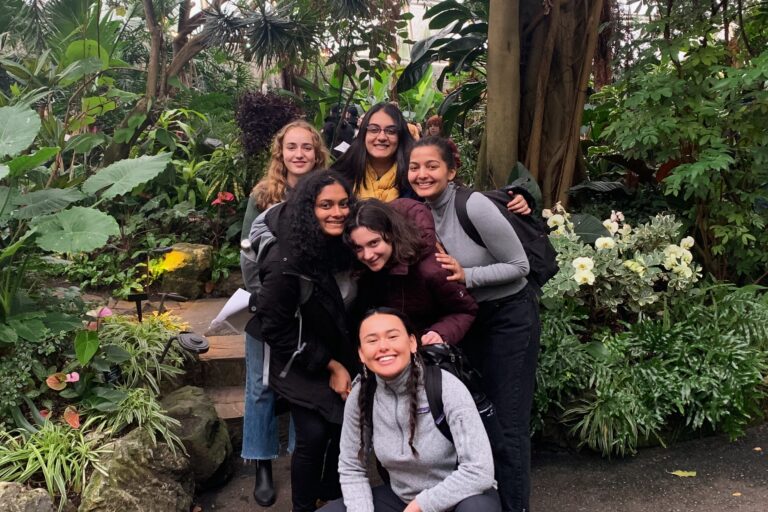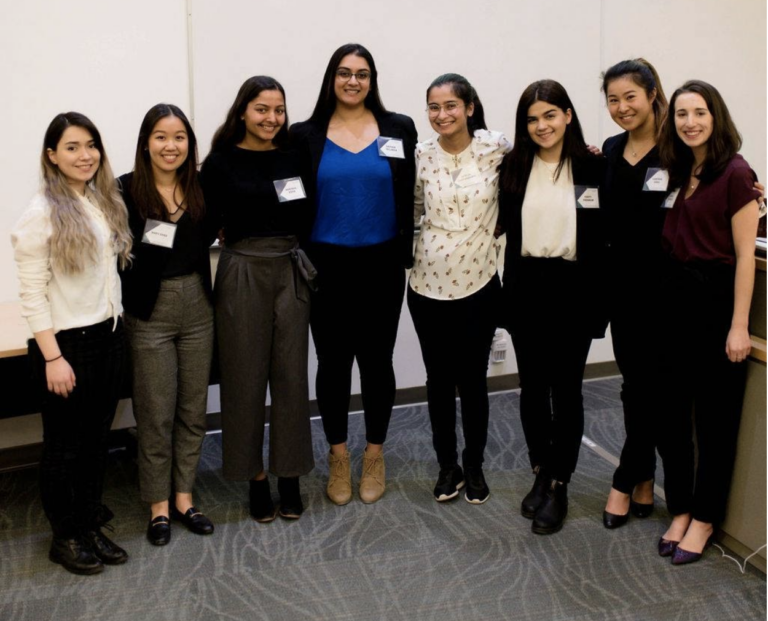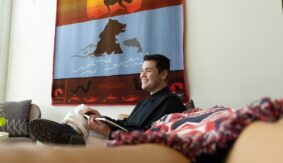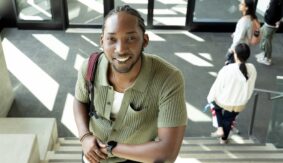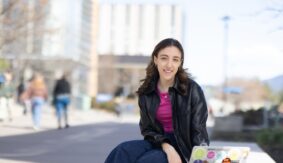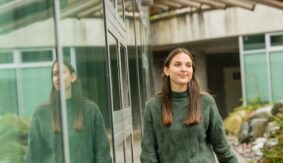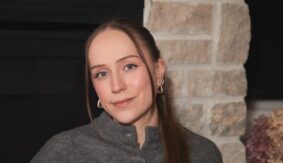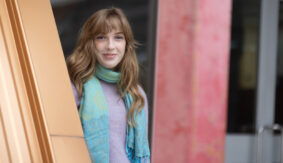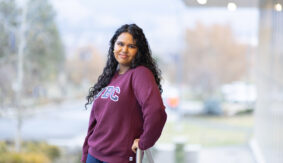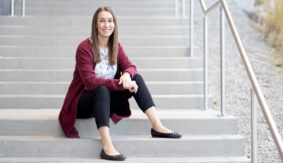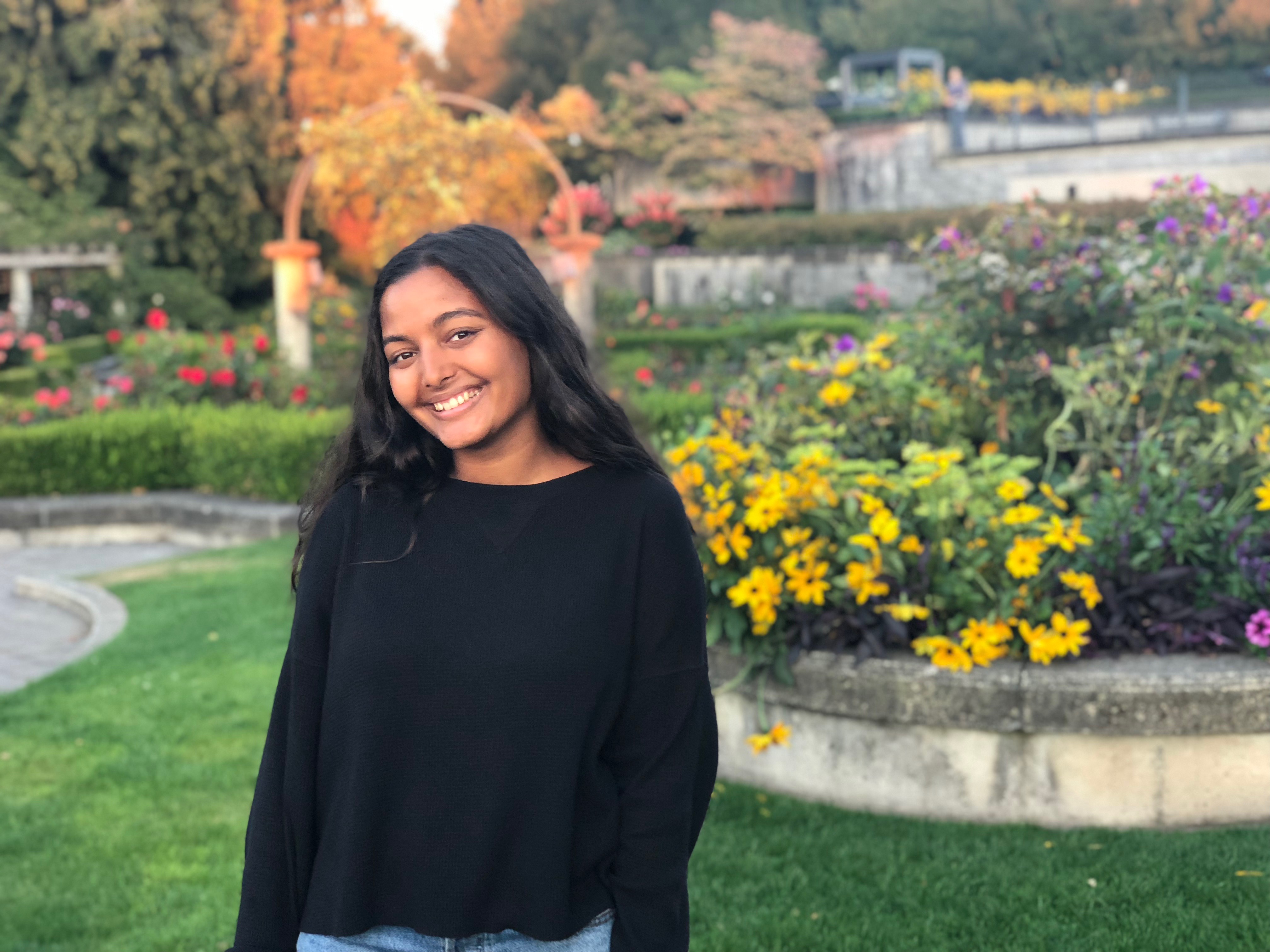
Marisha wasn’t sure that she would leave her home province for university until she visited UBC.
Discovering the beautiful campus and extensive learning opportunities UBC offered, she decided to try something new and head to the West Coast for her undergraduate degree. During her time at the university, she’s worked on creating sustainable technologies around the world, helped create an online health platform to manage the risk of overdose in vulnerable populations, and conducted her own research on how media about climate change affects individuals. Most important to her, however, was making the group of friends that she knows she’ll keep for life.
You’re originally from Ottawa, Ontario. Were you looking specifically for universities outside of your home province?
I knew that university would be the perfect time to step outside of my comfort zone and try something completely new! With this in mind, I knew I wanted to challenge myself by moving away from Ottawa and exploring another part of Canada. I did strongly consider schools in Ontario, but I knew that moving to a new province would give me a chance to be fully independent, even though the idea was really scary!
What attracted you to UBC?
Knowing that UBC offered a diversity of classes and clubs meant that I would be able to explore all of my interests alongside other students who had similar passions. I have so many different interests, ranging from neuroscience to city planning and technology, and knew I wanted to pursue all of them in some capacity. I also wanted to explore new things – even those that I didn’t know about in high school. If you had told me in Grade 12 that I would be on an engineering design team or taking a class on the politics of outer space, I would not have believed you!
Another big factor that led me to UBC was the location and beauty. I love how we have a beautiful campus that is separate, but not too far, from downtown Vancouver. Being so close to a major city means that there are so many job and volunteer opportunities, allowing students to get hands-on experience in their field. When I first visited UBC I had a gut feeling that this would be the right place for me, and I was absolutely right about that!
Do you miss anything about Ottawa or Ontario, and do you have any strategies for coping?
I miss my family and dog the most, especially since I only go home once or twice each year. My parents have always been very supportive of my decision to come to UBC, which has made the move to a new province so much easier! In my opinion, the best way to deal with being away from home is to surround yourself with supportive and caring friends.
You took part in the Science One first-year study option. Why did you choose that route?
I knew that I wanted to stay within Canada and move to a bigger city for my undergraduate degree. On the other hand, I also knew I wanted to be in a small program where I would see familiar faces often, especially since I didn’t know anyone in Vancouver or at UBC. After a bit of research, I came across the Science One first-year study option, where a small cohort of science students have all their classes together and get exposed to research in their first year.
I really liked the idea of having the same group of friends in all my classes while still having the experience of a larger student body and big city, so Science One allowed me to get the best of both worlds! My friends from Science One are still my closest friends, and we have been there for each other throughout our entire time in university. I know our friendships will continue long after we have graduated.
What was your favourite part of Science One?
I really liked the experiential learning opportunities that Science One offered. In first term, we went to the Bamfield Marine Science Centre to learn about marine biology in a hands-on setting, and in second term we got the opportunity to do an independent research project under the supervision of a professor. Learning about marine biology and research skills with our feet in the ocean beats a textbook any day!
You’re studying Behavioural Neuroscience at UBC. What’s the best part about your program?
I think the best part is my professors. It is such a privilege to learn from people who are so involved and experienced in their field. My professors have always made course material really engaging, such as my Developmental Psychology professor Dr Lily May, who would bring her baby to office hours to help us better understand how infants develop over time.
Can you talk about the research you’ve been able to do while at UBC?
One valuable research experience I had was completing a Directed Studies through the UBC Climate Hub. I got to work one-on-one with a professor to better understand how young people’s wellbeing is impacted by climate related media. This project meant a lot because I was able to integrate psychology and sustainability, which are two areas that really interest me! Completing the entire research process, from creating my own study design to analyzing my results, gave me such valuable insight into how research is conducted and whether it would be a good fit for me in the future.
You’re currently working in UBC’s Addiction and Concurrent Disorders Lab. What are you focusing on?
Our team is working on an e-mental health platform that aims to assess and manage the risks of opioid overdose in vulnerable populations. One of my roles is collaborating with other students and international researchers to develop cognitive exercises tailored specifically to those with substance use disorders. This work is especially meaningful to me because I know it will have an impact on people in Vancouver’s most vulnerable communities, especially in light of the COVID-19 pandemic. Working with this lab has allowed me to further explore the field of e-health and helped me to realize that I might be interested in pursuing a career in this field!
Can you tell us about your favourite clubs on campus?
I was involved with the Common Energy club, and led the Student Energy small team for two years. I really enjoyed learning more about sustainable energy and its social and technological impacts while also improving my leadership and communication skills. I have recently applied this interest in my position on Sustaingineering, an engineering design team that focuses on creating sustainable technologies in partnership with rural and remote communities around the world. My team is currently analyzing the environmental, social and economic impacts of a wind turbine system on a village in Nicaragua.
As well, I came across the UBC Neuroscience Club in my first year, and was a volunteer at their annual conference. I have continued to be involved as an executive member, and am now in my second year as a Co-President of the club.
What would you say to other students from Ontario who are considering attending UBC?
Step outside of your comfort zone! University is a great opportunity to move to a new city and immerse yourself in a completely new environment. It will be scary at first, but you will be surprised by how much you grow and how much you learn about yourself along the way.
In your opinion, what makes UBC distinctive from other universities?
UBC offers so much diversity in every sense of the word. I think our large student body allows everyone to find their community and explore passions they didn’t even know they had. I have taken classes that are so niche, like Environmental Health or Medical Anthropology, and have experienced everything from improv shows to cheese tasting and dance battles on campus. There is no shortage of communities to join during your time at UBC, so you can really make your experience unique to you as long as you are willing to step outside of your comfort zone!
